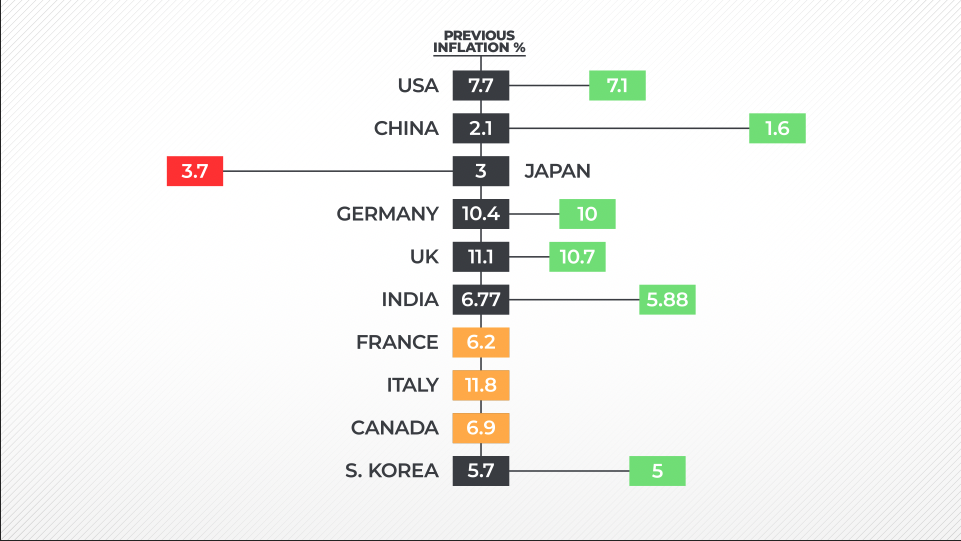The U.S. dollar’s global dominance has been a sure thing for about a century. Now emerging economies are looking to dethrone it.
Foreign ministers from Brazil, Russia, India, China and South Africa, nations known collectively as BRICS, have recently discussed using alternative currencies to challenge U.S. global influence. Representatives from the bloc gathered in Cape Town, South Africa, in early June ahead of a pivotal August summit.
“In the aftermath of the United States doing some pretty severe financial sanctions on the Russians, people are wondering if there’s a way to get away,” geopolitical strategist Peter Zeihan told Straight Arrow News’ Simone Del Rosario.
BRICS influence
The BRICS bloc already consists of more than 40% of the world population and about a third of global economic output. Now it is considering expanding its ranks for the first time in more than a decade.
At least 19 countries have asked to join the emerging-nations group, according to Anil Sooklal, South Africa’s ambassador to the group. Saudi Arabia, Iran, Argentina and the United Arab Emirates are among those interested in joining.
Back to dedollarization
With the likes of China and Russia in the group, it’s unsurprising BRICS is looking for ways to diminish U.S. influence. Since its creation, BRICS has been a counter to Western economic influence, from using the U.S. dollar as the world reserve currency to the U.S.-centric World Bank.
BRICS countries established the New Development Bank in 2015 as an alternative to the World Bank to facilitate funding for projects in developing nations.
While the NDB currently uses the U.S. dollar for most of its financing, President Dilma Rousseff announced this year the bank plans to finance more projects in local currencies to avoid foreign exchange fluctuations.
“We need to create a diversified global currency system,” Rousseff said in May. “In the future, it is unlikely that one single currency can dominate the world’s currency system.”
More than 58% of global reserve currencies tracked by the International Monetary Fund are held in U.S. dollars as of 2022. Less than 3% is held in the Chinese renminbi, the currency of the second-largest economy in the world and the most dominant nation in BRICS.
Would a BRICS currency work?
While BRICS members have discussed the possibility of creating a BRICS currency to counter the U.S. dollar, Zeihan expressed serious doubts about establishing a new currency.
“If it’s an independent authority, wow, the best way to get what you want for your country is to bribe the hell out of that authority. And that’s one of the reasons why this just can’t work.”
Peter Zeihan, geopolitical strategist
“Either it’s independent, in which case it’s the most corrupt system you can imagine, or one of the countries manages it, in which case that country manages it for his or her own economy, in which case everyone else is left on the outside,” Zeihan said. “Even with the United States weaponizing the dollar, it is still the least bad option for everyone, even the Russians.”
Without naming the Russians, South Africa Foreign Minister Naledi Pandor said the purpose behind exploring alternative currencies is, “to ensure that we do not become victim to sanctions that have secondary effects on countries that have no involvement in issues that have led to those unilateral sanctions.”
The next BRICS summit is scheduled for late August in South Africa but Russian President Vladimir Putin will not be in attendance. The International Criminal Court has issued a war crimes arrest warrant for Putin, and as a member of the ICC, South Africa is theoretically required to arrest him if he steps foot in the country.
Read about the effect Russian sanctions have had on the move away from the U.S. dollar here.
Countries are souring on the U.S. dollar. Is dedollarization really a risk? Catch the full interview with Peter Zeihan here.
